The post Getting Hearing Aids – What is the Process? appeared first on Auckland Hearing.
]]>5 Steps to hearing aids
Step 1: Make a time to see us
The first and hardest step for many is the first one, making an appointment for a hearing test. Research has shown it takes people 7 to 10 years to do something about their hearing loss. Of course, while you are getting used to the idea that you may have some hearing loss, you are missing conversations and connections with people every day. Gradually the people around you adapt to your hearing loss (often by speaking louder or choosing not to share incidental comments) and you start to make different decisions on how you will use your time (like avoiding social situations). Hearing loss impacts the way you live your life. There is also a lot of new research showing other
Of course, the first easy step is to have a hearing test, this will give you a clearer idea about your type and degree of hearing loss and why you can hear some sounds as well as everyone else, but you can’t always understand what people are saying, especially if it is noisy.
The next question is “Do you need hearing aids?”. Your audiologist will let you know if your hearing is in the range where hearing aids will help and your family may also have an opinion on you getting help with your hearing. However, it is essential that once you decide to get hearing aids that you are making this step for yourself. It is true that other people in your life are probably affected by your hearing loss, however, it is better for everyone if getting hearing aids is your choice.
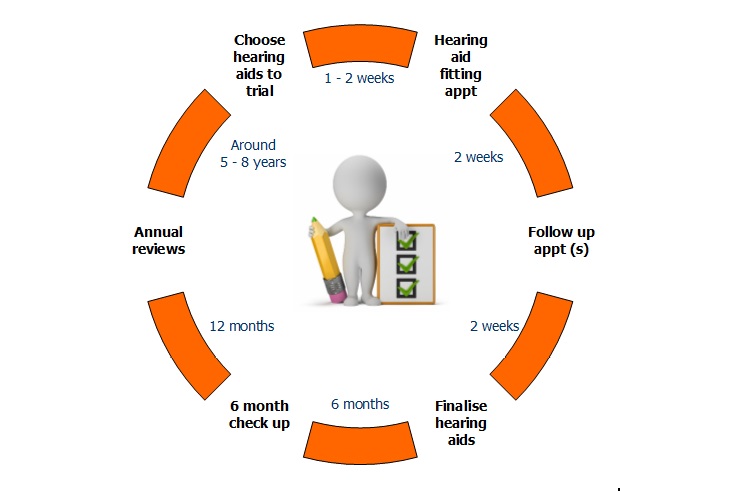
Diagram showing the process and approximate time periods for the life cycle of a pair of hearing aids
Step 2: Hearing Assessment & Discussion
Hearing loss can be:
A full hearing test will clarify your hearing levels and help identify possible causes of your hearing loss.
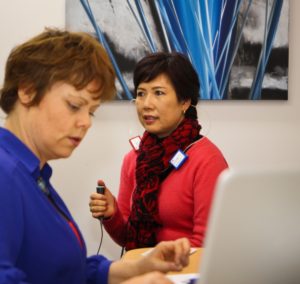
- conductive – where the sound is blocked from reaching the cochlear (outer or middle ear)
- sensorineural – where the cochlear is not able to detect all the sounds
- an auditory processing disorder (APD) – where the brain cannot process the sound detected by your ears detects.
Your Audiologist will discuss your test results. If there is hearing loss, we will let you know why it is affecting your ability to understand people speaking, even though you can hear some sounds easily. At this point, we will refer you on to any other professionals, for further assessment or management, if needed.
If you are interested, we will tell you a bit about hearing aids and possible options that might suit you. You can even have a listen through some hearing aids.
Needs Assessment
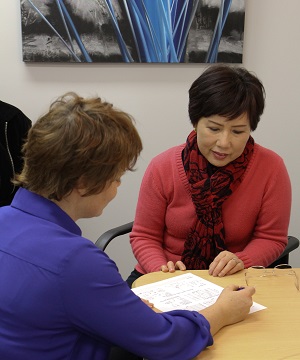
Once you have decided to learn more about hearing aids, we will go through your needs assessment process. We will ask you questions about your lifestyle and hearing challenges. From here we can decide on the hearing aid features and level of technology that suits you best. At this point we create a list of situations where you would like to hear and communicate better. When choosing hearing aids for you we take into account your:
- Hearing loss and other physical factors
- Lifestyle and your hearing needs
- Preferences i.e. what the hearing aid will look like or specific functionality
- Funding and budget – you may be eligible for funding from a government agency
Hearing aids are fitted on a 60-day trial
Once you have decided to trial hearing aids, the process takes 4 – 6 weeks. The 60-day trial system allows you to be sure you are hearing well with your new hearing aids and they are meeting your hearing needs. Depending on your type and degree of hearing loss it takes a few days to a few weeks to adjust to the new sound, so 60 days is plenty of time for you to get used to your new hearing aids.
Hearing aids are always paid for in full before taking them home. If you decide that hearing aids are not for you, you can hand them back within the 60-day time frame. If you do, you will be refunded the cost of the aids minus the fitting fee (to cover some of the time spent with you). We also have the option of changing to other hearing aids at this time if needed.
Hearing Aid Fitting Appointment
Our main goal at the fitting is to get you comfortable with the sound and management of your new hearing aids. We will:
- Calculate the sound required and program your hearing aids specifically for your hearing loss.
- Do real ear measures – use a small soft microphone to measure the sound in your ear canal. This verifies that the hearing aids are doing what we expect of them.
- Discuss the management of hearing aids, cleaning, using the phone
- Talk to you about adjusting to sound and wearing the hearing aids as much as you can.
- Book the follow up appointment – in 1 or 2 weeks time.
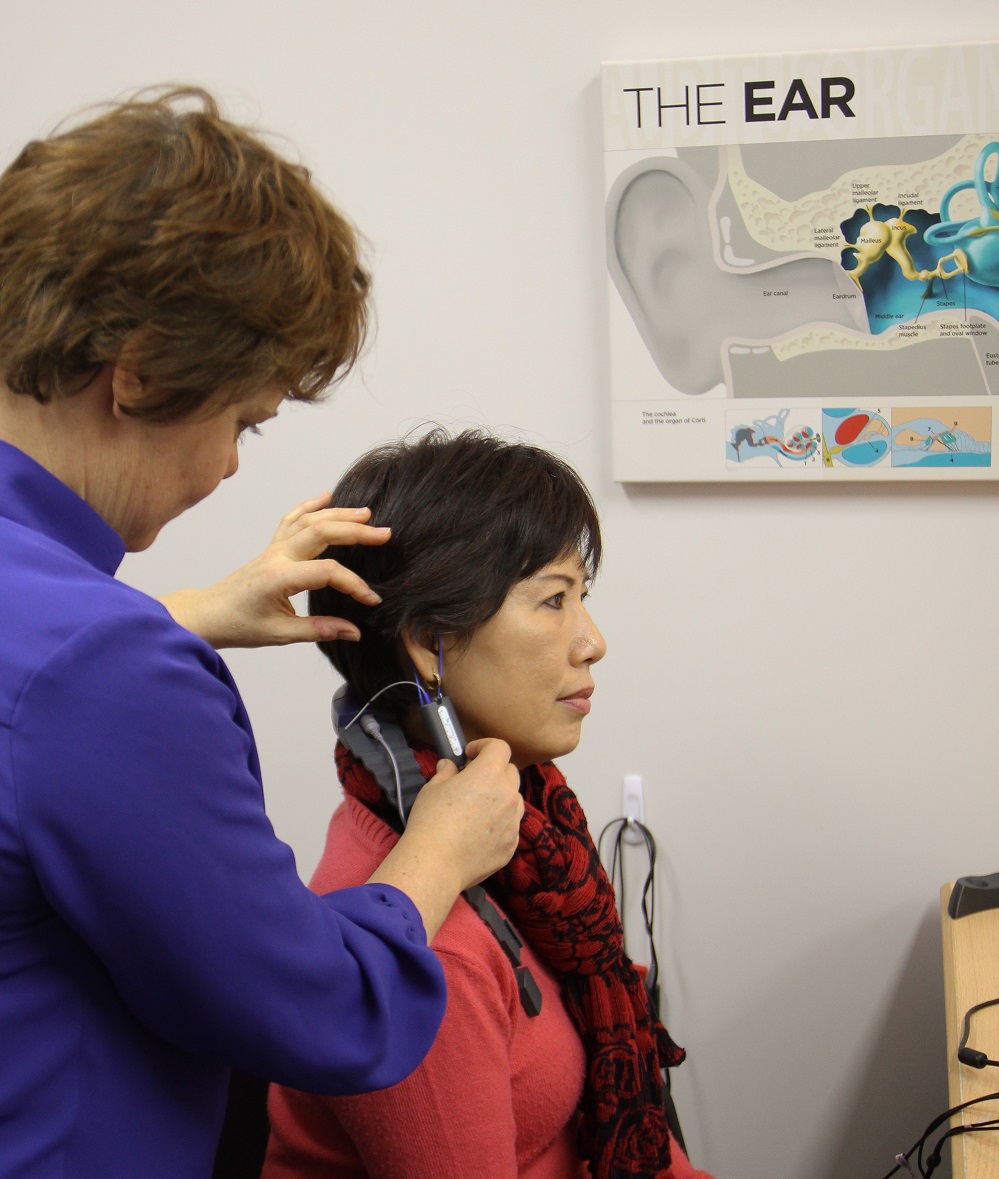
Follow up appointments
Follow up appointments allow us to check how you are going with the hearing aids and make adjustments, as required. Usually people have got used to the initial settings of the hearing aids and are ready for a clearer sound. The number of follow up appointments required will vary for different clients.
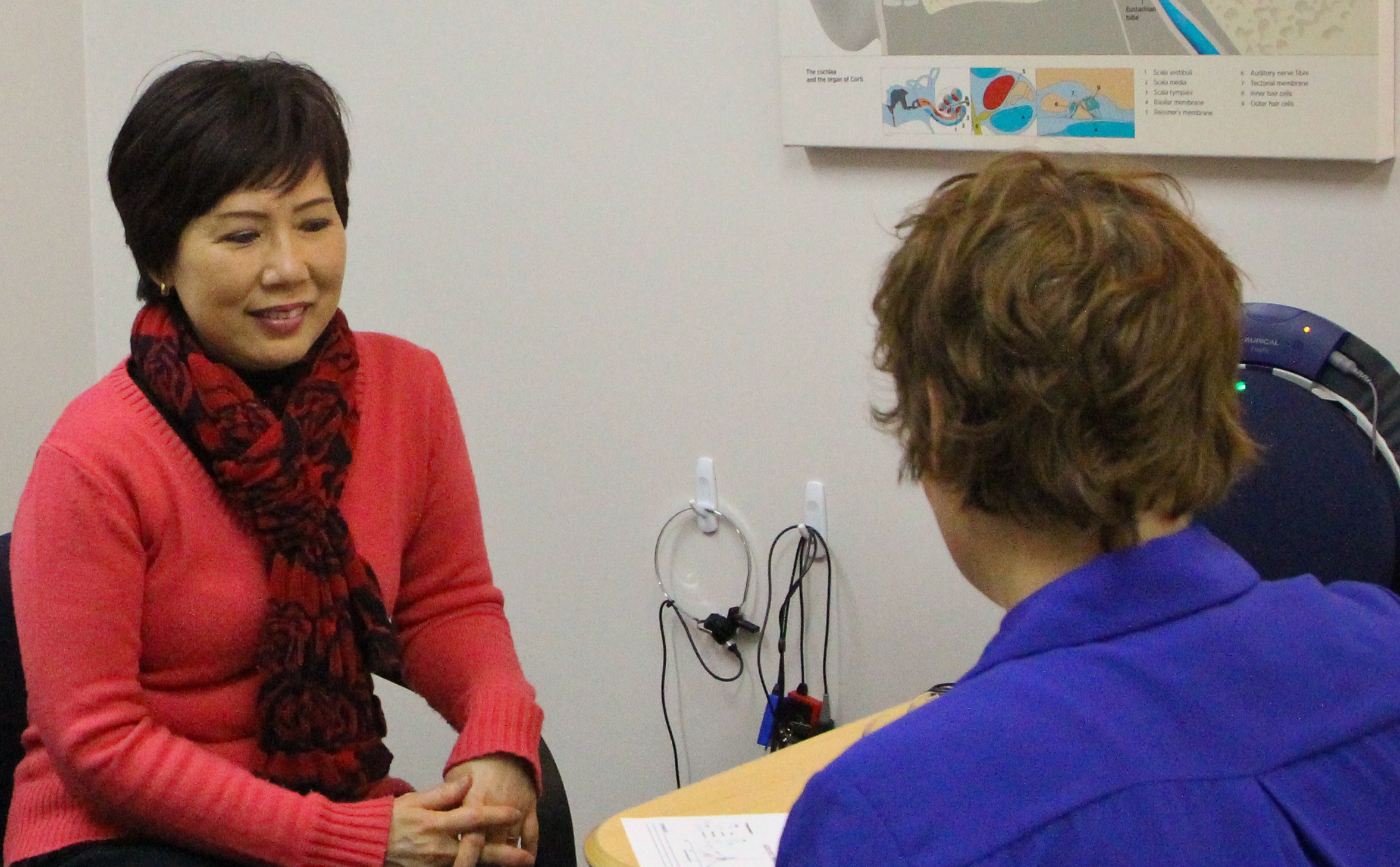
Finalising means that you are happy with your hearing aids and have decided you want to keep them. We will not schedule another appointment at this time but you are welcome to contact us again if you have further questions or need adjustments to your hearing aids. All appointments until your 6 month check are included.
6 Month Check
We will call you up in six months for a check up. This appointment and any appointments up until this time are included in the initial fitting fees. We will check how you are going with your hearing aids and can make adjustments or modification if needed.
Annual Review
You will be called up each year for your annual review, which will include a hearing assessment and adjustment of your hearing aids. We will also check your hearing aids over and make sure they are working as they should.
It is worth coming along to these appointments each year as often hearing gradually continues to change. When we refit your hearing aids to your up to date hearing test your hearing aids will sound clear and crisp again. You will notice the clarity difference especially in difficult listening environments like in groups or noise.
Maree contacted me recently and I went in for another check where she gave my hearing aids a tune-up to maintain their efficiency. With my slowly deteriorating hearing, I hadn’t noticed I wasn’t hearing as clearly as before. I was surprised at how much more I could hear once my hearing aids were adjusted.
Excellent service indeed!
Max Ross- Auckland CBD

Replacing your hearing aids
Traditionally hearing aids lasted about 4-5 years as they would be affected by wax, moisture, dust and dirt. Now most hearing aids are covered by high tech coatings that make them much more resistant to moisture.
Hearing aid lifetime – It is not possible to tell how long these current aids will last but with good care possibly 6-8 years. Obviously, you will need regular hearing assessments and adjustments over that time to keep them working the best for you.
Insurance – It is important that you have your hearing aids listed on your insurance policy just in case they do fall into water or get crushed or lost.
Hopefully, you are feeling clearer about the hearing aid fitting process now. As an Auckland Hearing client, you will become part of our Auckland Hearing community. As long as you are interested we will keep you up to date about the hearing world from hearing care to the latest hearing aids.
Please feel free to add any questions or comments in the section below. Or browse among the other articles about hearing loss and hearing aids.
The post Getting Hearing Aids – What is the Process? appeared first on Auckland Hearing.
]]>The post Do I have hearing loss? Do I need hearing aids? appeared first on Auckland Hearing.
]]>
“Perceived need*” is the main reason for the
slow uptake of hearing aids for some people.
*The perception that hearing loss is not severe enough
Why? – because people adjust
Gradually over time, the person with the hearing loss adjusts to not being able to hear, and the people around them change by speaking louder and directly to them. Eventually, as communication as it gets too hard, friends and family start choosing to share less. They stop telling jokes or sharing inconsequential news and discuss only significant matters.
Hearing loss is “invisible”. It is also sneaky…
Hearing loss is usually gradual: first, you have to concentrate harder to follow the conversation in a cafe, next socialising becomes tiring from all the extra effort you need to use to understand the banter; soon you mis-hear the directions and find yourself asking for repeats.
Eventually, people take one of two paths:
- To withdraw into your own world, keep to yourself or stop going out
- to become the life of the party because while you are talking, it doesn’t matter if you cannot hear… right?
What brought you to this page?
- Have you noticed that you have been missing the details more often?
- Are you struggling to follow along in a group conversation?
- Or – have other people suggested that you don’t always hear them?
Hearing loss affects people of all ages. There are many reasons for hearing loss including hereditary factors, noise exposure, trauma and ear pathology. Hearing loss does become more common as we age due.
Hearing loss is invisible
Hearing loss is painless
Hearing loss is gradual
Hearing loss is sneaky
In the beginning, hearing loss takes away…
- The beginning of the sentence,
- The little details,
- The punchline…
With time hearing loss may…
- … increase mental fatigue – as you concentrate harder just to follow along- leaving you feeling exhausted at the end of the day
- … begin to erode your confidence – as you are no longer sure about what was said
- … cause you to ask for repeats – when you miss the first word
- … lead you to feel embarrassed about missing the details or about having to ask for repeats too often
- … make you feel less interested in socialising, choosing to stay home as it is easier that way.
The gradual nature of hearing loss means that we adapt over time. We change our behaviour, we choose our environments and slowly our relationships change as everyone adapts to the change in our hearing.
Hearing loss is invisible and sneaky.
As it changes, we adjust.
Gradually it affects personality and relationships.
Hearing loss changes us over time.
Maree O’Sullivan
Effects of hearing loss on you
Having hearing loss does not usually mean that you stop hearing all sounds equally; the hearing loss pattern will depend on the cause of the hearing loss. In many cases, hearing loss begins in the high pitches leaving the hearing for low tones in the normal range. Words will start to sound dull or become less clear, resulting in a reduced understanding of speech, especially in difficult listening situations. For example, in a group of people, hearing while the TV or radio are on in the background or trying to understand conversation in a large echoey room. Although for some types of hearing loss (conductive) people hear well in noisy environments, where people are speaking loudly but cannot understand quiet speech.
The way you respond to reducing hearing clarity will depend on your personality, the degree and shape of your hearing loss and how long your hearing has been deteriorating. Most people with hearing loss find it tiring to follow the conversation, as their brain has to work harder to fill in all the sound gaps that they miss –
“…now was that See or Tea? Must be Tea – that makes more sense.”
This is called auditory fatigue.

Often people find the tiredness from auditory fatigue gets worse at the end of the day. It can be harder to keep up with fast conversation, especially in a group or if people are facing away.
Many people tell me that they have felt embarrassed by their hearing loss at some point, either because they have misunderstood someone or they felt embarrassed asking for repeats. Some people find it easier to step back from the intense concentration they need to use to stay in the conversation and slip into their own thoughts. Others will talk more, as when you are talking you do not need to hear. Unfortunately, both of these options lead to a change in relationships over time.
Impact of Hearing Loss
Hearing loss impact varies between individuals and is influenced by many factors including degree and cause of hearing disorders, length of untreated hearing loss and personality. We know hearing disorders leads to social isolation, personality change and in some people increases the chance of anxiety and depression. Studies have also found a strong link between hearing disorders and the development of dementia. This US article outlines the effects of untreated hearing disorder in adults.
It takes up to 10 years to seek help with hearing loss
So why do we wait to do something about Hearing disorders?
- Hearing loss is invisible
- Hearing loss is gradual
- People are great at adapting to their situation and change in hearing
- Family members help to compensate
- There is a history of stigma around hearing aids
- There is a history of poor technology in hearing aids
- We “just get on with it…”
- Change is hard! … and takes motivation
- We don’t understand what is involved in getting and using hearing aids…
- What is the process of getting hearing aids?
- What is the cost of hearing aids?
- What is the right hearing solution for me?
- Do I need to wear them all the time?
- How do I look after hearing aids?
Do you think you may have hearing loss?
Are you ready to take the first step?
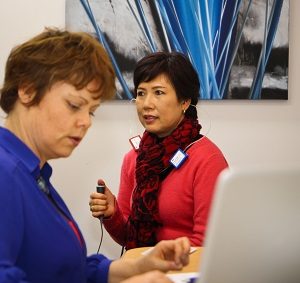
The first step is to have a full hearing assessment. This will assess your hearing level as well as pinpoint where in the ear the hearing loss originates. Hearing loss may be described as:
- Conductive – where there is a blockage stopping the sound from reaching the cochlear (outer or middle ear)
- Sensorineural – where the cochlear is not able to detect all the sounds
- Retrocochlear – where sound cannot be processed by the brain due to a blockage along the hearing pathway.
- An auditory processing disorder (APD) – where the brain cannot process the sound it detects.
The discussion after the hearing assessment will give you knowledge and understanding about your hearing and how it affects your life at the moment. If you are ready and interested, we will talk to you about the options we have for helping you with your hearing and what is involved. We will discuss the hearing aid funding options available for you. We will even fit you with some hearing aids, and you can go next door to the cafe for a cup of coffee while you try them out. From here, it is up to you to decide your next step.
Hearing aids are the most common and effective way to help people with hearing loss (after excluding medical reasons). However, before trialling hearing aids, it is important that you are ready in yourself, to go through the hearing aid process. It must be your decision, not someone else’s…
So… what was it that brought you to this page?
I hope this article helped you gain a greater understanding of hearing loss and its effects. Maybe the subject could be rephrased. Rather than the question being “Do I need hearing aids?” Perhaps, the question could be “Would I like to communicate easily with the people that matter to me?”
-

Do you want to converse easily? -
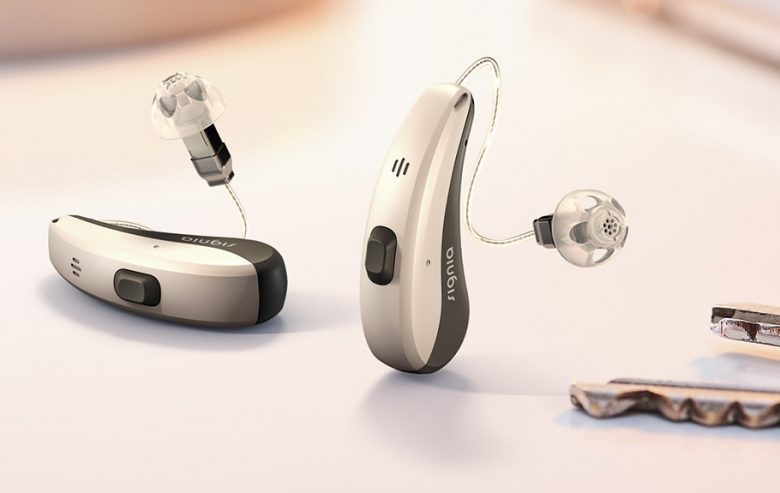
Do you want hearing aids?
“Do I need hearing aids?”
Well… “Do you need hearing aids?” Do you want to be part of the conversation?
Hearing loss is common. Many people wear hearing aids. Have you noticed them?
The post Do I have hearing loss? Do I need hearing aids? appeared first on Auckland Hearing.
]]>The post Making your decision to get hearing aids appeared first on Auckland Hearing.
]]>
Every process begins with a decision. The key to success with hearing aids is: that you have decided for yourself that you are ready to get help with your hearing and that hearing aids are the best option for you.
It is important that you have observed or decided some or all of these:
- you have noticed that your hearing is influencing the way you live your life
- you would like to improve your communication
- your would like to improve your relationships with family, friends and/or work colleagues
And that you want to do it for you – not to please someone else.
When would getting hearing aids not be your decision?

- Sometimes well intentioned family members influence people to get hearing aids
- you may be influenced by a professional – based on the level of hearing loss (audiogram)
- Because you “should” even though you are not quite ready in yourself
Why do I need to make this decision for myself?
Over all the years that your hearing has been gradually changing, so has your brain. The auditory part of your brain has been receiving less sound input, so it has had less information to process. In the “use it or loose it” way that our bodies work – the auditory processing part of your brain has been forgetting what to do as it hasn’t had to work so hard (other cognitive parts of your brain have been working harder to try and keep up with conversation, often causing auditory fatigue).
Luckily, once we provide that missing sound to your auditory system it can begin to use the information again and as long as it hasn’t been to long and your hearing loss is not too severe, usually we can get most of that functionality back. Just like when we start on a new exercise program, when we get hearing aids we need to start slowly and rebuild our “hearing muscles”. And like a new exercise program –
It can be hard work at the beginning
as you give yourself time to adjust to hearing again

Luckily, hearing aids now are of such great quality that you will adjust very quickly. Within half an hour, sounds that seemed strange or new when you first put on the hearing aids will begin to normalise.
The key to real success with hearing aids is continual use. A big reason that it is important that you are ready in yourself to get hearing aids is that we are going to …
We want to create a new normal – Normal to hear
To create a new normal, we are going to ask you to wear your hearing aids as much as you can. At first, you may find it tiring, as your brain has to work hard to process the extra sound that it had forgotten about over the last few years. By the end of the first two-week trial period you should be at the point where you can wear your hearing aids all day every day. By the time you finalise your hearing aids (decide you want to keep them) it will feel normal for you to hear.
Helping you adjust – moving from comfort to clarity
Usually we begin the hearing aid fitting process by working out how much sound you require to compensate for you hearing loss, then intentionally turn it down to keep the sound comfortable and acceptable. The goal at the first fitting is to get the sound comfortable, so that you are able to wear the hearing aids as much as possible, giving your brain time to adjust to the new sound. We then gradually turn the sound up over time. This gives your brain time to adjust to the sound, keeping it comfortable at the start and increasing the clarity over time.
It is key that you decide that you need hearing aids for yourself – because once you have decided to improve your hearing, there will be a short adaption process to go through as you adjust to hearing again.
Being ready and in a positive mind set helps this process run smoothly.
You are about to start on a hearing adventure.
If you are doubting your readiness for the process you may find it a bit harder to adjust to the new sound and to get on with hearing, communicating and getting involved.
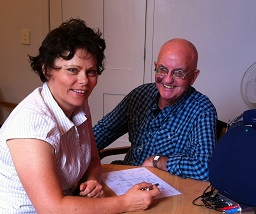
Max Ross
Auckland City
What will help me get to the point of readiness for hearing aids?
When you come along for your hearing assessment appointment we will talk to you about your hearing loss, how it is affecting your life and your options to help with your hearing (if required). After this appointment you will have time to think about and notice those effects as they happen in your everyday life.
You will know when you are ready to take action. You will be ready to:
- hear accurately the first time – not have to ask for repeats
- be involved in the conversations – rather than sit back so as to not feel embarrassed in case you miss something
- feel more relaxed – as you will hear the doorbell, the phone ring and the person walking up from behind
- feel more confident – as you are sure you are responding correctly
- have easier communication in your close relationships – because you hear correctly the first time
Ready Now? Follow this link to book your appointment.
Once you have made the decision to get hearing aids I’m sure you will have many questions about the process and what might be the best options for you. If you have questions about getting used to hearing aids or the adaptation process please add your questions below.
Or read on to the next article to find out more about the process of getting hearing aids.
Getting Hearing Aids – The Process
Hearing aids are fitted on a 60 day trial
Once you have decided to trial hearing aids, the process usually takes about 6 w…
The post Making your decision to get hearing aids appeared first on Auckland Hearing.
]]>The post Dead regions in the cochlear appeared first on Auckland Hearing.
]]>Cochlear dead regions
Earlier this year, I went to a talk by Brian Moore at The University of Auckland School of population health about testing for cochlear dead regions using the TENs test. I remember learning about this a number of years ago but it was great to hear it again and by the researcher himself.
In summary, dead regions are where there are no longer inner hair cell or innervation in some frequencies. The cochlear is tonotopic- high frequencies are found in the basal part of the cochlear (the beginning) and low frequencies at the far end (the apex).
Cochlear dead regions can occur in:
– the high frequencies (most common)
– low frequencies (more likely to be congenital)
– there can be a “dead hole” in the middle (very uncommon)
– a “surviving island” (very poor hearing)
or “patchy” – possible auditory neuropathy (very poor hearing)
Cochlear dead regions and hearing aids
Providing amplification (with hearing aids) in the frequency range where there is a dead region does not add any benefit. In some cases it can make hearing worse as it causes distortion across other regions where hearing is good. This is why we often reduce amplification or take it away in the frequencies where people have severe or profound hearing loss.
Cochlear dead regions
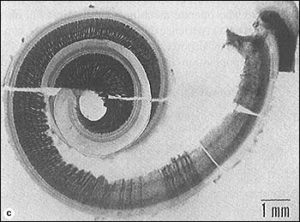

Something to keep in mind…
Frequency transposition hearing aids take sound from one pitch (dead region) and move it to another (hearing region). Hearing aids from most brands, have this type of solution in one form or another.
The most interesting take away from the evening was, that the research done by Brian Moore and his colleagues has shown that using frequency transposition hearing aids does not increase speech understanding. It is great to keep this research in mind moving forward as these frequency transposition features are often automatically switched on for certain hearing losses.
The post Dead regions in the cochlear appeared first on Auckland Hearing.
]]>The post Our quiet hearing clinic appeared first on Auckland Hearing.
]]>To test hearing accurately, a hearing clinic must meet criteria for very low noise levels. Noise, especially low-frequency noise (like trucks) may affect our ability to hear very quiet sounds and therefore affect the outcome of our hearing assessment.
Hearing clinics must pass a noise test that is carried out by independent experts. Sound levels are measured with a very sensitive sound level meter to establish that the clinic meets the criteria to be able to assess hearing accurately.

In April 2014, we began renovating our new Auckland Hearing clinic. We painted, carpeted and got new signage, so you can easily spot us as you drive along Michaels Ave.
By early May 2014, we were up and running. Our lovely new and quiet rooms passed the noise testing assessment, we are able to see all government funded clients, including ACC.
Here is a short movie of our new hearing clinic rooms:
Our little block of shops
Auckland Hearing clinic is in the middle 5 five shops. The shop on the far left is currently being renovated into a lovely new organic cafe. Once it is up and running, it will be a great place to have a break before or after an appointment.


Auckland Hearing clinic offers:
-
The best value hearing tests and hearing aids in Auckland
-
Independent advice on the best solution for your situations
-
Brand new state of the art testing equipment and client management systems
-
A commitment to understand and help you manage your hearing loss.

Hearing loss – Me?
I wonder: What brought you to this page?
Have you noticed that you have been missing the details more often?
The post Our quiet hearing clinic appeared first on Auckland Hearing.
]]>
